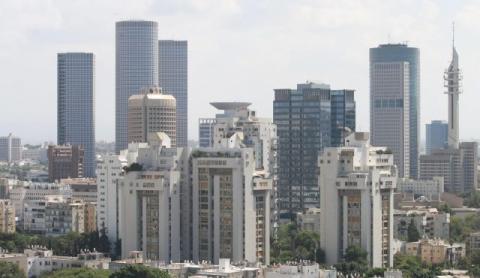A provincial "startup nation"
This difference between Silicon Valley and Tel Aviv is important when looking toward the future. The world understands the importance of technological initiative for economic growth and is attempting to copy the model of Silicon Valley. New York, Los Angeles, Boston and other cities in the United States are building their own ecosystems, and similar processes are also underway outside the United States.
Here are a few examples: Tech City U.K., the lively center for thousands of high-tech firms that grew in East London in recent years; the accelerated development of technology companies in Dublin, the capital of Ireland, where Facebook opened its first center outside of the United States; and also a city less known to most Israelis, named Florianopolis, which has already won the title of the Silicon Valley of Brazil.
If Tel Aviv is ranked second in the world among cities having the most supportive environment for creating startups, why are entrepreneurs from all over the world not flocking there? The natural tendency is to grab hold of the well-known geopolitical reasons - and we should recognize that such reasons are to some degree valid. But this explanation is the easiest and it is not the only one; after all, the high-tech world is known for its ability to function within a bubble and to operate in the language of computer code and applications, cut off from the immediate surroundings and certainly from the environment farther away.
A no less important explanation is connected to the way the State of Israel relates to almost every avenue of endeavor: Without vision and without planning. Because we have been too busy prettying ourselves up with all the compliments about being the startup nation, we have done nothing to turn the country into an important high-tech center not only for the veterans of the IDF's 8200 intelligence unit, but also for young entrepreneurs from across the world. There have been no unique international education programs, no impressive international conferences - and not a single creative idea.
In practice, we have done nothing to interest foreign entrepreneurs to consider establishing their startups in the triangle defined by Ramat Hahayal, Herzliya Pituah and the center of Tel Aviv. The strict immigration policy of the "Jewish State" also does not contribute to the development of a community of international entrepreneurs in Tel Aviv.
We may very well see the results in the not too distant future. The new centers of entrepreneurship around the globe will continue to grow and strengthen, while Tel Aviv will remain mostly with the sweet memories of its historic victory as runner-up to Silicon Valley.
The writer is a media adviser to technology and financial firms.
Udi Nahshon

